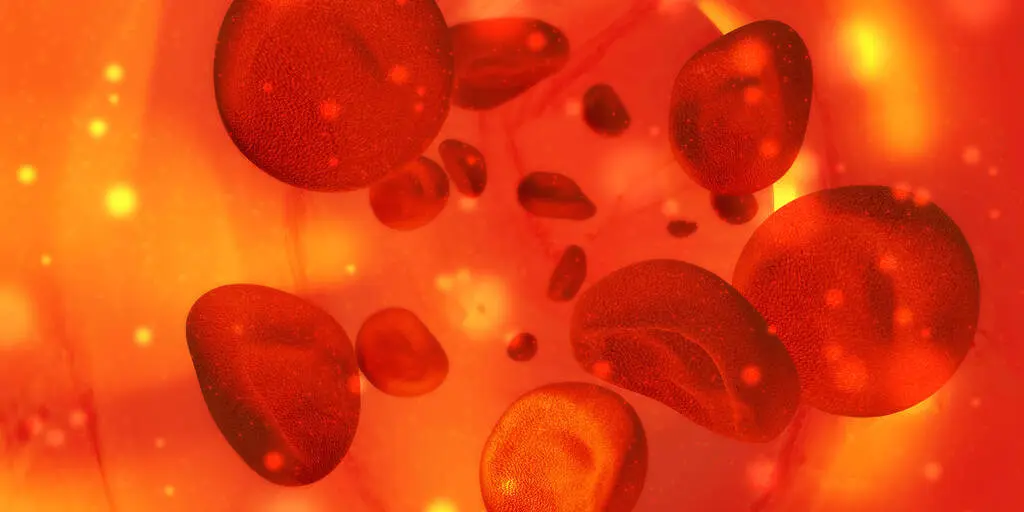What is Dark Chocolate?
Dark chocolate is a delectable treat that not only satisfies our sweet tooth but also offers a range of potential health benefits. Made from cocoa beans, dark chocolate contains a high percentage of cocoa solids, making it more nutritious than its counterparts.
Unlike milk chocolate or white chocolate, dark chocolate has a lower sugar content and higher cocoa content, which is packed with antioxidant compounds known as flavanols.
Dark chocolate is good for you because it has flavanols that improve blood flow, lower blood pressure, and reduce the risk of heart disease. It also has antioxidants to protect against damage and inflammation. Overall, dark chocolate is a tasty treat that can benefit your health.
The Benefits of Dark Chocolate
Dark chocolate is not only a delicious treat but also offers a range of potential health benefits. Research suggests that consuming dark chocolate in moderation may have positive effects on blood pressure, heart health, diabetes risk, and even vision.
The secret lies in the rich source of antioxidants and beneficial compounds found in dark chocolate. One such compound is flavanol, which has been linked to improved blood vessel function and a decrease in blood pressure. Dark chocolate also contains other antioxidant compounds, such as polyphenols, which can reduce the risk of heart disease and promote cardiovascular health.
Additionally, dark chocolate has been shown to improve insulin sensitivity and help regulate blood sugar levels, thus reducing the risk of developing diabetes. This is due to its low sugar content and high cocoa solids content.

Furthermore, the flavanols and antioxidants found in dark chocolate may have protective effects on the eyes, potentially reducing the risk of macular degeneration and improving overall vision.
While dark chocolate offers potential health benefits, it is important to consume it in moderation. Opt for high-quality dark chocolate with a high cocoa content, and limit daily doses to a small amount to avoid excessive calorie intake or weight gain.
Dark Chocolate for Blood Health
Dark chocolate offers numerous health benefits, including improvements in blood health. Consuming dark chocolate can enhance blood vessel function, decrease blood pressure, and reduce the risk of heart disease. These benefits can be attributed to the presence of flavanols, polyphenols, and theobromine in dark chocolate.
Flavanols, a type of antioxidant compound found in dark chocolate, have been shown to improve blood vessel function. They help to relax and widen the blood vessels, promoting better blood flow. This, in turn, can help to lower blood pressure. The polyphenols in dark chocolate also have a positive impact on blood clot prevention, reducing the risk of cardiovascular issues.

Furthermore, theobromine, a natural stimulant found in dark chocolate, can aid in blood pressure regulation. It works by dilating blood vessels and increasing blood flow, leading to improved circulation.
In addition to its influence on blood health, dark chocolate offers other advantages. Its anti-inflammatory properties can reduce inflammation in the body, while its ability to lower LDL cholesterol levels contributes to heart health. Furthermore, the flavanols and antioxidants in dark chocolate have been linked to improved cognitive function.
Blood Pressure and Heart Disease Risk
Dark chocolate has become increasingly popular for its potential health benefits, especially when it comes to blood pressure and the risk of heart disease.
Numerous studies have shown that the flavanols and antioxidants present in dark chocolate can have a positive impact on blood vessel function. These compounds help to relax and widen blood vessels, promoting better blood flow and ultimately leading to a decrease in blood pressure.
Additionally, dark chocolate’s polyphenols contribute to preventing blood clots and reducing the risk of cardiovascular issues. Not only does dark chocolate offer these potential health benefits, but its anti-inflammatory properties and ability to lower LDL cholesterol levels also contribute to overall heart health.

With these advantages, it’s no wonder that dark chocolate is gaining recognition as a sweet solution for promoting blood health and reducing the risk of heart disease.
How Dark Chocolate Affects Blood Pressure
Dark chocolate, particularly varieties with a cocoa content of 50-70%, has been found to have a positive effect on blood pressure.
A Harvard study, which reviewed 24 previous studies on the topic, revealed that consuming dark chocolate can lead to a significant decrease in blood pressure, especially for individuals with hypertension.
The key components responsible for this beneficial effect are flavonols, a type of antioxidant compound found in dark chocolate. Flavonols have been shown to provide various health benefits, such as improving blood flow and relaxing blood vessels, which can ultimately result in lower blood pressure.

It’s important to note that the darker the chocolate, the higher the flavonol content. This means that high-quality dark chocolate with a higher percentage of cocoa has a more significant impact on blood pressure. However, moderation is key since chocolate also contains sugar and calories, which can lead to weight gain if consumed in excess.
The consumption of dark chocolate, particularly varieties with a cocoa content of 50-70%, can help to lower blood pressure, especially in individuals with hypertension. The presence of flavonols in dark chocolate plays a crucial role in its effectiveness in promoting cardiovascular health.
So, go ahead and indulge your sweet tooth, but remember to enjoy dark chocolate in moderation for its potential health benefits.
How Dark Chocolate Reduces the Risk of Heart Disease
Dark chocolate has emerged as a sweet solution to reducing the risk of heart disease. Numerous studies have indicated that dark chocolate can have a positive impact on cholesterol levels, blood pressure, and the health of the endothelial layer of the artery wall.
One notable study published in the Journal of Nutrition found that consuming dark chocolate improved cholesterol profiles. Participants experienced a decrease in LDL cholesterol, often referred to as the “bad” cholesterol, as well as lower triglyceride levels. Additionally, their HDL cholesterol, also known as the “good” cholesterol, increased.

The secret behind dark chocolate’s heart-healthy benefits lies in its high flavonol content. Flavonols are a group of antioxidant compounds that have been shown to improve blood flow and reduce blood pressure. These effects are especially promising for individuals with hypertension.
It is worth noting that not all chocolates are created equal. Dark chocolate, with a higher percentage of cocoa, has a higher concentration of flavonols and therefore has a greater impact on heart health. However, moderation is crucial, as chocolate also contains sugar and calories that can contribute to weight gain if consumed excessively.
Incorporating dark chocolate into a balanced diet may help reduce the risk of heart disease. Its ability to improve cholesterol levels, lower blood pressure, and enhance the health of the artery wall make it a delicious and beneficial addition to a heart-healthy lifestyle.
Cocoa Beans and Health Benefits
Cocoa beans are the star ingredient in one of life’s most beloved treats: chocolate. But what many may not realize is that cocoa beans also offer a range of health benefits. Packed with antioxidant properties, cocoa beans have been found to improve blood flow and promote cardiovascular health.
Studies have shown that consuming dark chocolate, which has a higher cocoa content, can lead to a decrease in blood pressure and LDL cholesterol levels while increasing HDL cholesterol.
Additionally, cocoa beans have been linked to improved cognitive function and brain health, making them a sweet solution for both the body and mind.

However, it’s important to keep in mind that moderation is key, as chocolate also contains sugar and calories that can contribute to weight gain when consumed in excess. So go ahead and indulge your sweet tooth with some high-quality dark chocolate, but remember to savor it in moderate, daily doses to reap the potential health benefits of these amazing cocoa beans.
Nutrients Found in Cocoa Beans
Cocoa beans are not only delicious but also packed with various nutrients that provide numerous health benefits. These beans are rich in bioactive components, including total phenolic compounds, catechin, caffeine, epicatechin, and flavonoids.
These components contribute to the distinct flavor and aroma of cocoa beans and are responsible for the organoleptic properties of cocoa and dark chocolate. The phenolic compounds, particularly the flavonoids, act as antioxidants, protecting the body from free radicals and reducing oxidative stress.

In addition to the bioactive components, dark chocolate also contains important nutrients that support overall health. Dark chocolate is a good source of iron, magnesium, potassium, zinc, and copper, which are essential for various bodily functions. Iron helps in the production of red blood cells, while magnesium supports bone health and regulates blood sugar levels.
Furthermore, dark chocolate is rich in antioxidants, which combat inflammation and protect against chronic diseases. These antioxidants help improve cardiovascular health by improving blood flow, reducing blood pressure, and decreasing the risk of blood clots.
Overall, cocoa beans are a treasure trove of nutrients and bioactive components. Incorporating dark chocolate, which is made from cocoa beans with high levels of cocoa solids, into your diet can provide you with the health benefits of these nutrients, making it a sweet and nutritious treat for your taste buds and your body.
Antioxidant Properties of Cocoa Beans
Cocoa beans possess remarkable antioxidant properties that make them beneficial for overall health. These antioxidant properties are primarily attributed to the presence of bioactive components, such as polyphenols and flavonoids, which contribute to the overall health benefits of cocoa.
Polyphenols and flavonoids are potent antioxidants that help protect the body against free radicals and oxidative stress. These compounds scavenge harmful free radicals in the body, reducing the risk of chronic diseases and promoting cellular health.
Cocoa beans contain various specific antioxidants, including catechin, quercetin, and procyanidin B2. Catechin is a flavonoid known for its ability to enhance cardiovascular health and reduce the risk of heart disease. Quercetin, another flavonoid, exhibits anti-inflammatory properties and supports immune system function. Procyanidin B2 is a type of flavanol that promotes healthy blood circulation and may reduce blood pressure.

Consuming cocoa beans and their antioxidant compounds may offer a range of health benefits. Regular consumption has been linked to improved cardiovascular health, including reduced blood pressure, improved blood flow, and a decreased risk of blood clots. Additionally, cocoa beans’ antioxidant properties may contribute to enhanced cognitive function, reduced inflammation, and protection against chronic diseases.
Incorporating cocoa beans into the diet can provide an enjoyable and healthful way to reap the benefits of these antioxidant-rich superfoods.
Other Health Benefits of Cocoa Beans
In addition to their antioxidant properties, cocoa beans also contain various bioactive components that contribute to their overall health benefits. These components include total phenolic compounds, catechin, caffeine, epicatechin, and flavonoids.
Total phenolic compounds are a group of antioxidants found in cocoa beans that have been shown to have numerous health benefits. These compounds help reduce the risk of chronic diseases, such as cardiovascular disease and certain types of cancer. They also possess anti-inflammatory and antimicrobial properties, which support immune system function.
Catechin is a flavonoid present in cocoa beans that has been linked to improved cardiovascular health. It helps lower blood pressure, reduce oxidative stress, and improve blood flow. Caffeine, another bioactive component, acts as a stimulant and can improve cognitive function and alertness.

Epicatechin, a type of flavonoid, plays a key role in the organoleptic properties of cocoa and dark chocolate. It contributes to the bitterness and astringency of cocoa, as well as its distinct flavor.
Flavonoids, including epicatechin, also provide potential health benefits by improving blood vessel function, reducing the risk of blood clots, and increasing blood flow to the heart. They have been associated with a decreased risk of heart disease, stroke, and other cardiovascular conditions.
Cocoa beans contain a range of bioactive components that offer diverse health benefits. Consuming cocoa or dark chocolate rich in these compounds may help promote cardiovascular health, reduce the risk of blood clots, and improve blood flow.
Weight Gain, Types of Chocolate, and Cocoa Content
When it comes to sweet indulgences, chocolate is a top favorite for many people. But not all chocolate is created equal.
Weight Gain
It is commonly believed that consuming chocolate leads to weight gain. However, the truth is more nuanced. While chocolate can be high in calories and fat, weight gain is primarily influenced by overall calorie intake and lifestyle factors.
Moderation is key, and incorporating small amounts of dark chocolate into a balanced diet can actually be a part of a healthy lifestyle without causing significant weight gain.
Types of Chocolate
Chocolate comes in various forms and types, each with its own unique characteristics. The most common types include dark chocolate, milk chocolate, and white chocolate.
Dark chocolate, made with a high percentage of cocoa solids and minimal added sugars, is often considered the healthiest option due to its higher concentration of antioxidants and potential health benefits.
Milk chocolate, which contains added milk solids and sugars, is a sweeter and creamier option.
White chocolate, despite its name, does not contain cocoa solids and is primarily made from cocoa butter, giving it a milder and less chocolatey taste.
Cocoa Content
One of the crucial factors in determining the health benefits of chocolate is its cocoa content. The cocoa content refers to the amount of cocoa solids present in the chocolate product. Generally, higher cocoa content translates to a higher concentration of antioxidants and flavonoids, which are associated with potential health benefits.
When choosing chocolate, opt for dark chocolate with a higher cocoa content, preferably 70% or higher, to reap the maximum benefits. By paying attention to cocoa content, you can make informed choices to enjoy chocolate as a delicious and potentially beneficial treat.
Does Eating Dark Chocolate Cause Weight Gain?
Many people wonder if consuming dark chocolate can lead to weight gain. The answer is not as simple as a yes or no. While dark chocolate can be high in calories and fat, the relationship between eating dark chocolate and weight gain depends on various factors.
Firstly, consuming dark chocolate in moderation is key. Incorporating small amounts of dark chocolate into a well-balanced diet is unlikely to contribute significantly to weight gain. It is important to consider overall calorie intake and lifestyle factors when assessing the impact of dark chocolate on weight.
Secondly, the cocoa content in dark chocolate plays a role. Dark chocolate with a higher percentage of cocoa solids typically contains more antioxidants and potential health benefits, making it a healthier choice compared to milk chocolate or white chocolate. These antioxidants may have a positive impact on factors that contribute to weight management, such as metabolism and insulin sensitivity.

Lastly, it is essential to consider portion sizes and the consumption of dark chocolate in combination with a healthy lifestyle that includes regular exercise and a balanced diet. Dark chocolate can be enjoyed as an occasional treat without causing significant weight gain.
While consuming excessive amounts of dark chocolate can contribute to weight gain, moderate consumption, consideration of cocoa content, and overall lifestyle factors are important in determining the impact of dark chocolate on weight. By making mindful choices and enjoying dark chocolate in moderation, it can be a part of a healthy lifestyle without significant weight gain.
*Hey there! Are you struggling to lose weight no matter how much you diet or exercise? Turns out it’s not your fault. One common factor in overweight men and women is low inner body temperature. Your inner body temperature is the temperature of your internal organs and cells which plays a role in how your body metabolizes fat.
So, what’s the fix? Try Alpilean – it’s unlike anything you’ve tried before. It contains nutrients and plants that target and optimize low body temperature, a new cause of unexplained weight gain. To find out more, click the link below.
https://182b7dmkxcr7vnqxtdsht6tv6x.hop.clickbank.net
As a Clickbank Affiliate, I receive a small commission at no cost to you, if you proceed to make a purchase.
Types of Chocolate: Milk vs. White vs. Dark
When it comes to types of chocolate, there are three main contenders: milk chocolate, white chocolate, and dark chocolate. Each type has its own unique characteristics and composition.
Milk chocolate is the most popular and widely consumed chocolate. It is made by combining cocoa solids with milk powder or condensed milk, giving it a creamy and sweet taste. While milk chocolate does contain cocoa, its cocoa content is generally lower compared to dark chocolate. It also tends to have a higher sugar content.
White chocolate is produced by combining cocoa butter, sugar, milk powder, and flavorings, and it lacks cocoa solids, resulting in a pale color and a rich, buttery flavor.

Dark chocolate is often considered the healthiest option due to its higher cocoa content and lower sugar content. It is made by combining cocoa solids, cocoa butter, and sugar. The higher the cocoa content, the more intense and bitter the taste. Dark chocolate is known to contain various nutrients, including flavanols, iron, and magnesium, which offer potential health benefits.
The cocoa beans used in chocolate production are the source of these health benefits. Cocoa beans are rich in flavonoids, which are antioxidant compounds that can support cardiovascular health, improve blood flow, and reduce the risk of heart disease. They also contain minerals such as iron and magnesium, which play important roles in various bodily functions.
Milk chocolate, white chocolate, and dark chocolate differ in their composition, with dark chocolate having a higher cocoa content and lower sugar content. Dark chocolate, with its rich nutrient profile and potential health benefits derived from cocoa beans, stands out as a healthier choice among the three options.
Percent Cocoa in Different Types of Chocolates
When it comes to chocolate, the percentage of cocoa is a crucial factor that determines both its taste and health benefits. Dark chocolate, the healthiest option, contains a higher cocoa content and lower sugar content compared to milk chocolate. The higher the cocoa percentage, the more intense and bitter the taste, but also the greater the health benefits.
Dark chocolate can have varying levels of cocoa content, with mild dark chocolate usually ranging from 55% to 65%. It offers a balanced flavor profile and is a good starting point for those new to dark chocolate.
Intense dark chocolate, with cocoa percentages ranging from 70% to 85%, has a stronger and more robust taste. It contains higher levels of flavanols and antioxidants, granting it greater health benefits.
Phenol-rich dark chocolate, with a cocoa content of 85% or more, is the most intense and bitter option. It has the highest levels of antioxidants, making it an excellent choice for those seeking maximum health benefits.

It should be noted that cocoa also contains caffeine, and the caffeine content increases with higher cocoa content. However, the levels of caffeine in dark chocolate are relatively low compared to other sources such as coffee. So, even with a high cocoa percentage, the caffeine content in dark chocolate is unlikely to have a significant impact.
The cocoa percentage in dark chocolate plays a significant role in both taste and health benefits. Whether you prefer mild, intense, or phenol-rich dark chocolate, enjoying a piece of high-quality dark chocolate with a higher cocoa content can be a delightful and healthful indulgence.
Sugar Content in Different Types of Chocolates
Different types of chocolates vary not only in their taste and cocoa content but also in their sugar content.
Milk chocolate, known for its creamy and sweet flavor, typically has the highest sugar content among the different chocolate varieties.
On the other hand, dark chocolate, with its higher cocoa content, usually contains less sugar compared to milk chocolate.
White chocolate, despite not containing any cocoa solids, still contains sugar as it is made from cocoa butter, sugar, and milk solids.
In terms of sugar content per serving, milk chocolate typically contains around 12-16 grams of sugar per ounce, while white chocolate can have a slightly higher sugar content of about 15-17 grams per ounce. Dark chocolate, particularly those with higher cocoa percentages, usually have a lower sugar content, ranging from 5-10 grams per ounce.

While indulging in chocolate can be a delightful treat, it’s important to be mindful of the amount of sugar consumed. High sugar intake has been linked to various health risks, including weight gain, increased risk of heart disease, and impaired blood sugar control. Therefore, it is recommended to enjoy chocolate in moderation and opt for dark chocolate with lower sugar content whenever possible.
Different types of chocolates have varying sugar content, with milk chocolate containing the highest amount of sugar, white chocolate falling in the middle, and dark chocolate having the lowest sugar content. Being aware of the sugar content in chocolate is crucial for maintaining a balanced and healthy diet.
In Conclusion
Dark chocolate is a nutritious and delicious treat that can provide various health benefits. It is important to be mindful of the cocoa content when selecting dark chocolate, as this will determine both the taste and the health benefits associated with it.
Dark chocolate with higher cocoa content generally contains more antioxidants, flavanols, and other beneficial compounds that can help improve blood health. Additionally, opting for dark chocolate with higher cocoa content can also help reduce sugar intake, as these tend to contain less sugar compared to other chocolates.
Dark chocolate is a delicious and nutritious indulgence that can be enjoyed in moderation for optimal health benefits.


